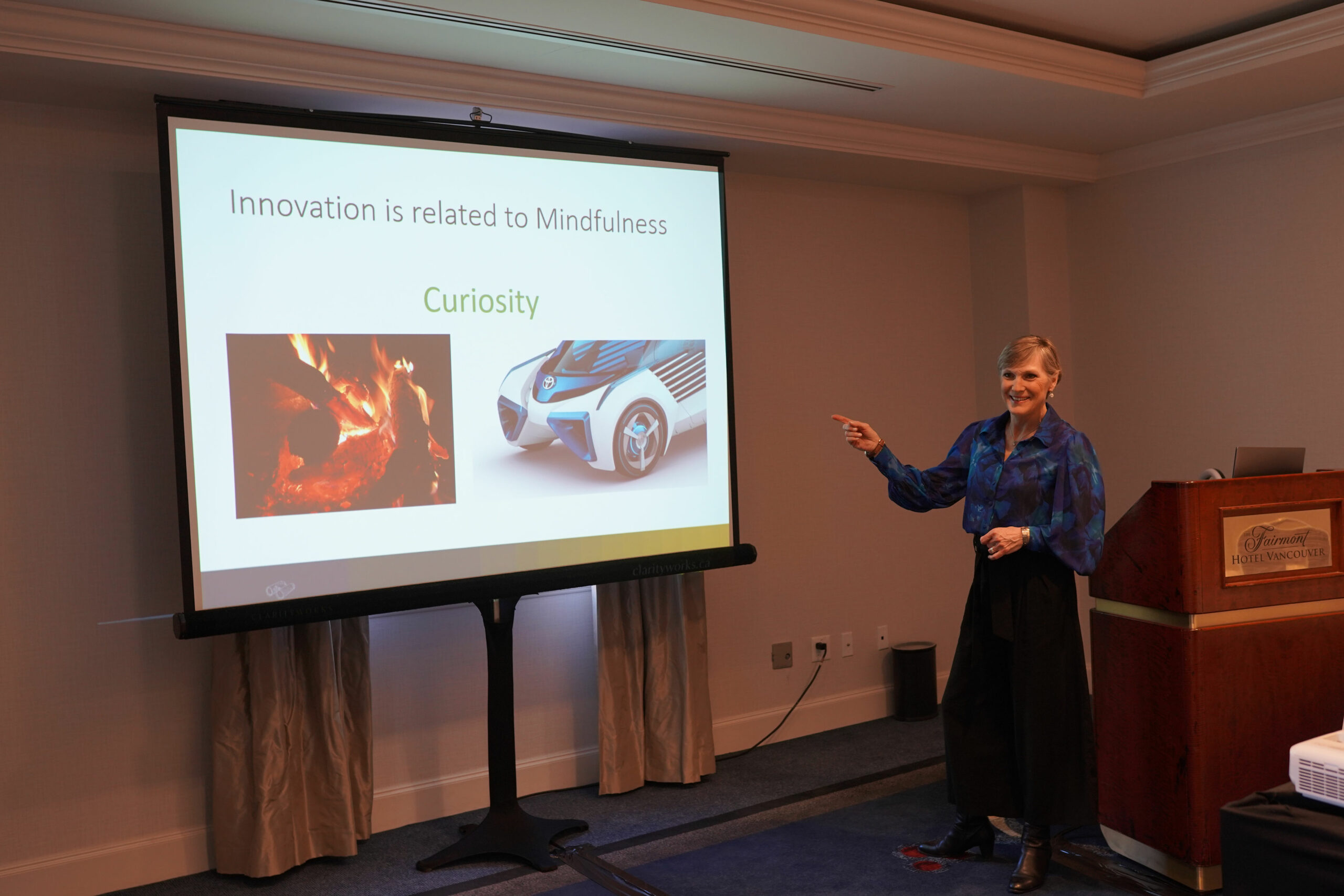The process of strategic planning includes disciplined steps. One of the steps typically involves a collaborative session or workshop where team leaders, stakeholders or board members come together to develop plans for a project or an organization’s future – the next quarter, the coming year or beyond. Mindful facilitation can play a key role in organizational strategic planning.
A facilitator’s role is to act as wrangler, conductor, site-supervisor, coach, and humourist all in one. As an “outsider” the facilitator offers the process – the system by which outcomes can be achieved. The facilitator coordinates the session with someone inside the organization and is then responsible to bring it all together by suggesting the pre-work required before the strat-session, formatting the workshop structure, managing the time, creating an environment for participants that is open, respectful, creative, inclusive, thought-provoking, and on-topic. Team members in an organization, subject-matter experts, stakeholders offer knowledge as the content. The facilitator’s role is to combine all the inputs together in a framework so that by wrap-time the group can see ahead for the next project, year or planning cycle.
The facilitator’s role is to establish and maintain a state of focused awareness, a platform of mindful “presence” where great outputs can be fostered. Mindfulness is described as a state of being fully aware in the present moment, with a keen sense of curiosity and openness. This platform of mindful awareness informs more aligned decision making and strategic action planning. Focusing on key elements relevant to an industry and sector, drilling down to specific market conditions and consumer insights that resonate for a target audience, prioritizing tactics that can be implemented with resources, time and budget – these steps come together as mindful teamwork in action.
Mindfulness first found its way into my facilitation style as a brand strategist in the ad agency world. My team travelled across North America running multi-day sessions for clients. We were responsible to deliver strategic, data-driven, creatively infused, immersive sessions. We were the A-team on a results-driven mission. The collaboration of expertise at our on-site sessions propelled clients and their projects forward. It was, quite often, fairly intense.
My tactic for navigating the intensity drew on my personal mindfulness practice. Mindfulness honed my ability in a strategic setting to be an observer and a listener. To be a witness to the unfolding of information as well as to the establishment of respectful, client/colleague/friend relationships. Being aware and present during those long sessions enhanced my ability to filter information and to summarize the elements that were most relevant, most appropriate and targeted for results. It helped me to be a better strategist, team player and a more insightful facilitator.
As a seasoned facilitator mindfulness is as valuable to me as the years of experience I have gained across diverse sectors and complex initiatives. Mindfulness is the platform from which awareness, curiosity and openness can inform collaboration, decision making and strategic outcomes.
Tips for Mindful Facilitation:
Focused Preplanning:
Pre-planning and the work that takes place in advance of a strategic session are key elements to the outcome. The facilitator’s pre-planning role is to clarify expectations with the client, conduct their own due diligence, and assign any homework to participants in advance of the session.
Reality Check:
“Rome wasn’t built in a day.” Be clear about what the group can and should deliver with the time and resources available for both the strategic session and for the expected outcomes.
Aware, Open Attitude:
When the code of conduct is outlined for the session the facilitator should include an “invitation” for participants to commit to being mindful, aware, open and curious without judgement. This approach can enhance the experience and net better outcomes for the group as a whole.

